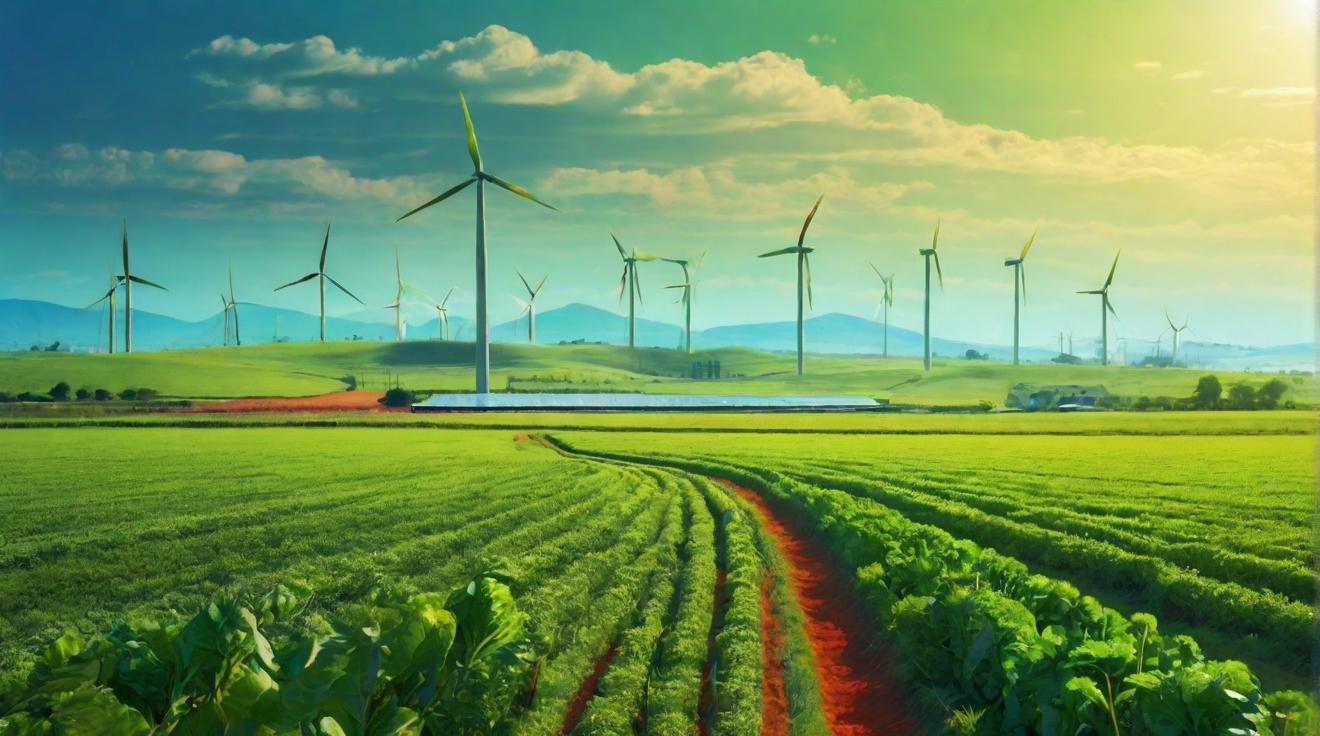Investing in Sustainable Agriculture: Opportunities in the Green Food Revolution
In the midst of a global climate crisis, the agriculture sector stands at a crossroads. Traditional farming practices are increasingly unsustainable, contributing significantly to environmental degradation and climate change. However, a green food revolution is on the rise, presenting unprecedented investment opportunities in sustainable agriculture. As consumers, corporations, and governments alike prioritize sustainability, the market for eco-friendly agricultural solutions is expanding rapidly.
The Rise of Sustainable Farming
Sustainable agriculture combines innovative farming techniques and technologies to increase efficiency, reduce waste, and minimize environmental impact. This approach includes precision farming, organic agriculture, vertical farming, and the adoption of renewable energy sources in agricultural operations. The goal is clear: produce more food with fewer resources while preserving the environment for future generations.
Investment in sustainable agriculture is not just an ethical choice but a financially sound one. The demand for sustainable food products is soaring, driven by a more environmentally conscious consumer base. This shift in consumer preferences is compelling retailers and food manufacturers to seek out sustainably sourced ingredients, thus creating a growing market for products of sustainable agriculture.
Technological Innovations Fueling the Sector
Technological innovation plays a crucial role in the green food revolution. Agri-tech startups are at the forefront, developing solutions such as drought-resistant crops, soil health monitoring systems, and robotic farming equipment. These innovations not only make farming more sustainable but also increase crop yields and reduce labor costs, enhancing the overall profitability of sustainable farming practices.
Investors are taking note. Venture capital flowing into agri-tech has surged, indicating strong confidence in the sector's growth potential. Moreover, governments worldwide are offering incentives for sustainable farming practices, recognizing their importance in achieving climate goals.
Opportunities and Challenges Ahead
Despite the promising outlook, investing in sustainable agriculture comes with its challenges. The initial cost of adopting new technologies can be high, and there is a need for more supportive policies in some regions. However, the long-term benefits, including reduced environmental impact, increased food security, and enhanced farmer livelihoods, are compelling reasons for stakeholders to overcome these hurdles.
As the world moves towards a more sustainable future, the opportunities in sustainable agriculture are vast. From impact investing in agri-tech startups to green bonds financing large-scale sustainable farming projects, there are numerous ways for investors to contribute to and benefit from the green food revolution.
Conclusion
The transition to sustainable agriculture is not just a necessity in the fight against climate change; it represents a significant investment opportunity. With the right strategies and support, sustainable agriculture can provide a sustainable return on investment while making a positive impact on the planet. The green food revolution is well underway, and those who invest in it now stand to reap the rewards in the years to come.
By focusing on sustainable agriculture, investors have the chance to be at the forefront of a critical and lucrative shift towards a greener, more resilient food system. The time to act is now, as the sector continues to evolve and expand, offering a fertile ground for innovation, growth, and long-term sustainability.













